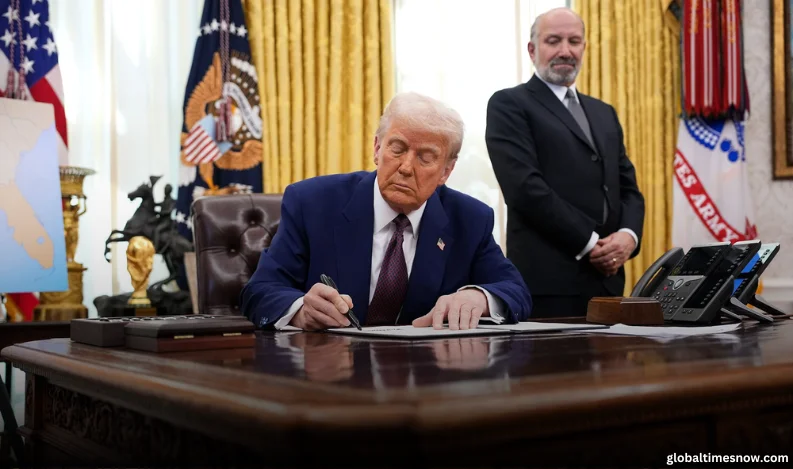Washington, D.C. – Hours before his scheduled meeting with Indian Prime Minister Narendra Modi, U.S. President Donald Trump reaffirmed his commitment to reciprocal tariffs, signaling a potential escalation in trade tensions.
Taking to Truth Social early Thursday morning (6:46 AM EST / 5:16 PM IST), Trump declared:
"THREE GREAT WEEKS, PERHAPS THE BEST EVER, BUT TODAY IS THE BIG ONE: RECIPROCAL TARIFFS!!! MAKE AMERICA GREAT AGAIN!!!"
The announcement reinforces Trump’s longstanding stance on trade, emphasizing retaliatory import duties against countries imposing tariffs on American goods. The White House confirmed that a news conference would be held at 1:00 PM local time (11:30 PM IST) to elaborate on the policy.
Impact on Global Trade
Trump’s "reciprocal tariffs" framework is expected to introduce new trade barriers, affecting key U.S. trading partners, including India. According to the White House, the policy is aimed at leveling the playing field, but it could also widen ongoing trade disputes.
On Wednesday, Trump signed executive orders to initiate this tariff structure, potentially impacting allies as well as economic rivals. If implemented before his meeting with PM Modi, the move may set the tone for discussions between the two leaders.
PM Modi’s Visit and Tariff Concerns
Prime Minister Narendra Modi arrived in the United States earlier today for his first bilateral summit since Trump secured a second term in November 2024. The meeting is expected to cover trade policies, tariffs, and immigration—two issues that have recently strained relations between the two nations.
Trump’s tariff hikes, including a 25% duty on steel and aluminum imports, have already impacted Indian exporters. The Indian stock market plummeted over 1,000 points earlier this week in response to the announcement.
While India is not a major steel supplier to the U.S., it is a leading producer of aluminum, with America being a key export market. The new tariffs could disrupt supply chains, affecting major Indian manufacturers such as Vedanta and Hindalco.
Trump’s Stance on India and Trade
This is not the first time Trump has criticized India’s trade policies. In past statements, he has labeled India a “very big abuser” in trade and accused the country of imposing “enormously high tariffs” on American goods.
Recently, India slashed import duties on select U.S. products, including luxury motorcycles, cars, and smartphone components, in a move expected to benefit brands like Harley-Davidson, Tesla, and Apple. However, Indian officials have clarified that these duty cuts were not a response to Trump's trade policies but rather part of a broader economic strategy.
A Repeat of Trump’s First Term?
Trump’s first presidency (2017-2021) saw similar tariff implementations, which led to initial gains in U.S. manufacturing employment due to corporate tax cuts. However, after the introduction of steel and aluminum tariffs in 2018, the U.S. lost manufacturing jobs in 2019, with industrial production entering a downturn.
In his second term, Trump appears to be doubling down on his protectionist approach, reinforcing his “America First” trade doctrine. As he prepares to meet with PM Modi, the global business community will closely watch the outcome of these tariff negotiations and their potential impact on India-U.S. trade relations.























